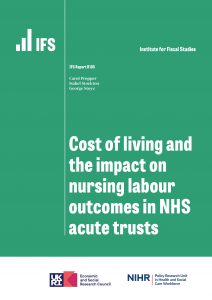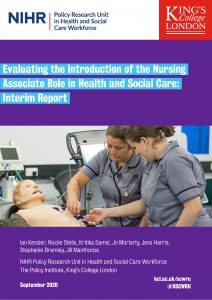Emily Porro is an 15 January 2026. (1,003 words)
On 15 January, ARC South London held their Knowledge Exchange event at King’s College London, with the focus on doing inclusive applied health and care research in turbulent times. I attended the event as an awardee on ARC South London’s SHARE Research Capacity Building Programme, supporting practitioners to build capacity for research in their workplaces. As an outreach Navigator in St Mungo’s, working with people rough sleeping in South London, I feel strongly about ensuring service users with high support needs and facing deep social exclusion are meaningfully included in research, in order to share their depth of knowledge and opinion. I was therefore particularly excited about the theme of this event, and the presentations certainly stood out for embedding excluded groups within every stage of their work, from the researchers themselves to the methods they used. Continue reading
 Dr Antonina Semkina
Dr Antonina Semkina




